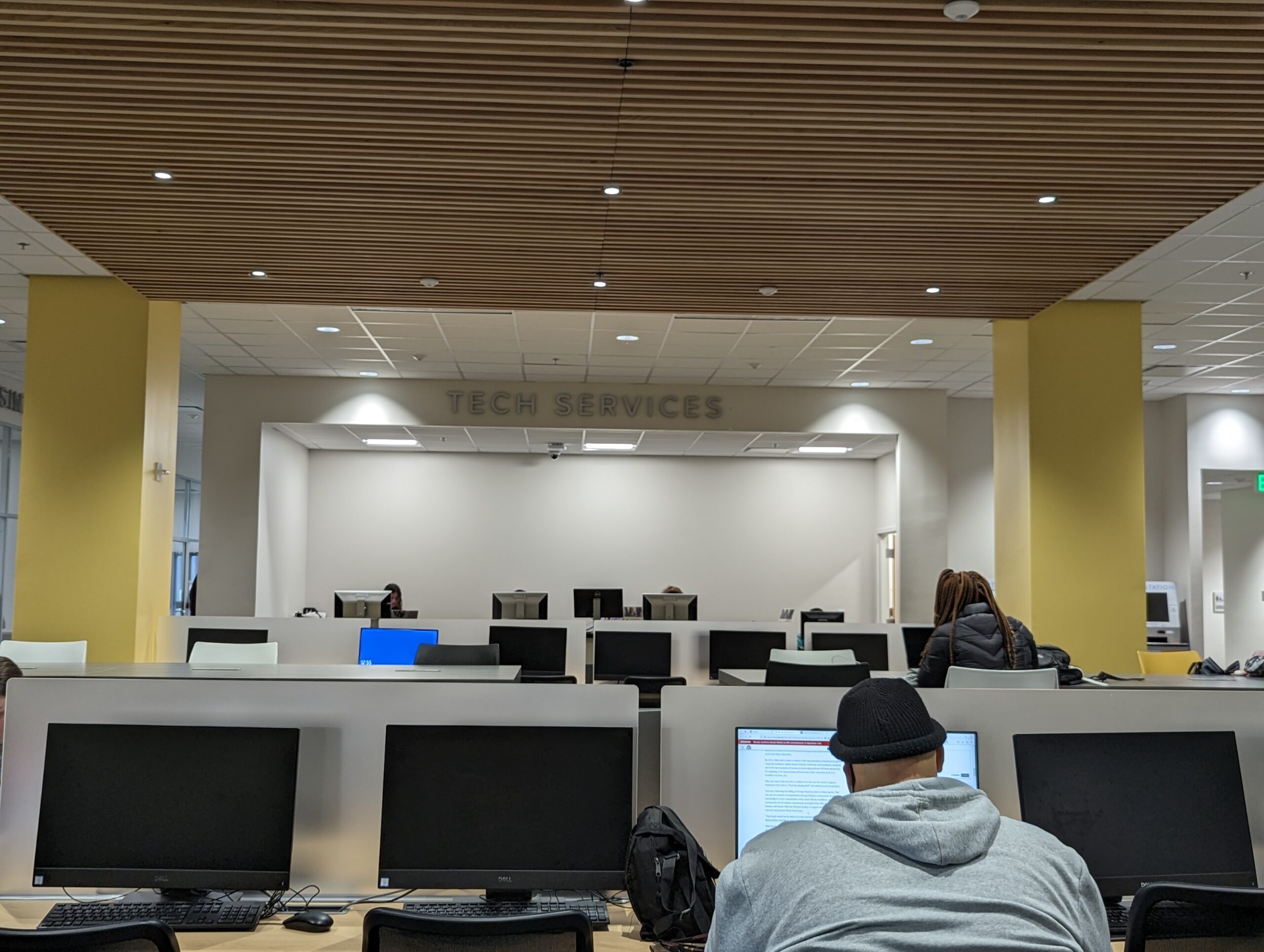
Towson professors, students remain cautious about ChatGTP, AI generators
By: Jonah Lewis, Staff Writer
As open-source artificial intelligence tools make their way through the education system, several Towson University professors and students share mixed feelings about the technology.
A software that’s gotten a lot of attention recently is ChatGPT, an AI bot that allows users to feed prompts and produce results such as essays, poems, and screenplays. ChatGPT and other open-source AI tools have recently been at the forefront of academic debates, as students are taking to the software to complete assignments.
The success of ChatGPT has spawned a race among many different tech developers to produce a more intelligent and reasoning AI, with the newest being GPT-4. This AI can describe images in words, something ChatGPT cannot.
Additionally, companies like Turnitin have started a parallel race to develop technology that can detect AI chatbots and their writing styles.
The existential issue of AI has become so pervasive in some classrooms that some professors, including one professor from the University of Pennsylvania’s prestigious Wharton School, have incorporated ChatGPT fully into the curriculum.
Towson history Professor Frank Alduino said he does not see the technology becoming mainstream in schools anytime soon, at least within his own course.
“My exams are closely monitored,” he said. “I change my essay questions every semester so that they’re not recyclable, plus my term paper is very personalized. It’s basically a genealogical project which looks at a student’s history.”
Towson University defines cheating as “using or attempting to use unauthorized materials, information, notes, study aids or other devices in any academic exercise,” including unauthorized communication of information during an exercise.
Alternatively, Michael Rickelton, a music professor, said he has incorporated ChatGPT into his lessons while acknowledging that his experiences may not be similar to those of other professors.
“In music, I’ve talked to students about exploring it as a way to generate lyric ideas,” he said. “In more of an academic context, it’s hard to say generally what should be allowed. I think it depends on the field.”
However, Rickelton went on to say that he thinks the rise of AI is a negative educational development.
“I think we’ve already gone down the road of having less expectations overall, and I’m not sure if this is something that students will use in a positive way or if they will use it to take the easy way out,” he said.
Even outside of the English language, ChatGPT has found its way into the classrooms of Towson’s foreign language department. Annette Budzinski-Luftig, a German professor, echoed Rickelton’s concerns about ChatGPT’s future problems but said she remains open-minded to its possibilities.
“I’ve designed assignments around the use of ChatGPT,” she said. “I had students analyze its capabilities, advantages and disadvantages for their production, and students were not fully convinced of the value of [ChatGPT].”
As for students, including Sophomore Hedgar Aleman, agree with the faculty that while the development of AI is scary, it will not become commonplace in the academic world.
“I feel like even academically, it would be something that backfires eventually,” he said. “Your unit or prompts are not gonna line up perfectly, plus every material is different slightly.”
Similarly, Freshman Abigail Mendez said while AI is helpful, students shouldn’t become dependent on the software.
“I think it’s helpful in some circumstances, like writing a paper or something, but it definitely shouldn’t fully depend on to get a grade in a class,” said freshman Abigail Mendez. “I feel like it’ll be helpful for us, but in education, it won’t reflect the true abilities of a student, and you’re only gonna get what you want out of it to pass the class,” she said.

